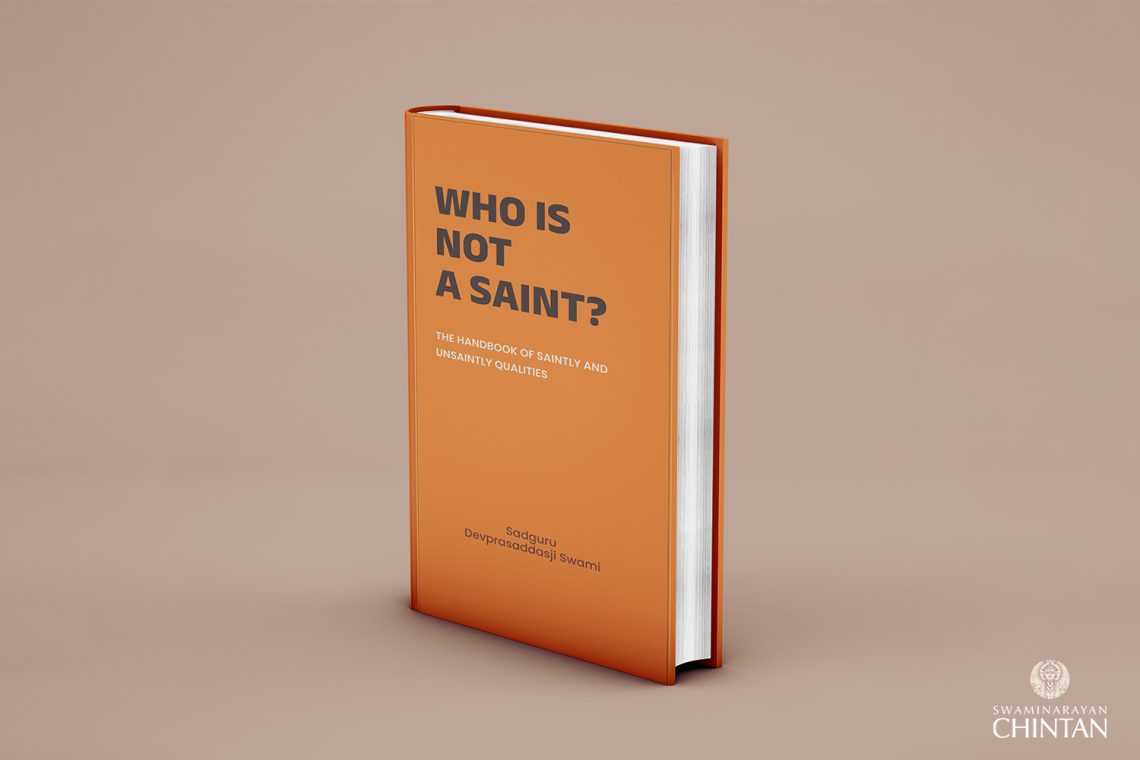We don’t like others to highlight our faults
If someone finds good qualities in a person, he will be happy about it. If someone finds faults in the same person, will he be happy as well?
If someone points to a person, for his own good, that, “You have these faults in you,” those words would taste bitter to him. He will find it very hard to accept that bitter truth even if it is told by his own Guru or someone close to him.
When we try to find our own faults, it would not be as bitter. It would be slightly bitter, yet it is acceptable.
We don’t like others highlighting our faults. We are okay to point our faults to ourselves, and that is the easiest path of rectifying our own faults.
So, Shreeji Maharaj has said that one should find his own faults if he wants to overcome them.
Self-admiration doesn’t allow us to accept our own faults
Kans organized a large marriage ceremony for his sister Devakiji with Vasudevji followed by a grand reception. He was proud of himself for how well he had organized his sister’s marriage and reception.
At that time, the whole city of Mathura praised Kans. “What a grand marriage it was. What a great brother he is.”
After the marriage, Vasudevji and Devakiji were riding on a chariot driven by Kans to attend post-marriage ceremonies.
After they rode for a little while, a celestial voice from the sky said, “You foolish Kans. You are going to be killed by your sister Devakiji’s eighth child.”
Hearing that, the attitude of Kans went against Vasudevji and Devakiji, and he immediately raised his sword to kill them.
Parikshit Maharaj was also a king. He too received a curse from a Rushi, who cursed, “On the seventh day from today, you will be dead by a snake bite.”
But unlike Kans, he didn’t go against the Rushi who had cursed him. He didn’t raise his sword on the Rushi who had cursed him, by challenging, “How dare you to curse me?”
Both had the same treatment. Yet both their reactions were different. Why?
Self-admiration is the reason. Kans admires himself while Parikshit Maharaj doesn’t as much.
Kans is considered an Asur.
What is the meaning of “Asur”?
asushhu ye ramante iti asurah
Definition: One who takes pleasure from the senses and the body is called Asur.
Asu means pran—vital forces of life or the sense-organs. The one who is completely immersed in taking care of the body, feeding the body, he/she, as per scriptures, is called Asur. Meaning, the one who has self-admiration is called Asur.
If there is no self-admiration, or slight self-admiration, then he/she is daivi (divine). One who tries to reduce self-admiration is divine. One who has completely eliminated self-admiration is a liberated soul.
A self-admiring person cannot accept criticism
One who doesn’t understand his own faults becomes offended when someone criticizes him. On the other hand, one who is actively attempting to remove his own faults is actually pleased when someone points out his faults. He appreciates the person who pointed out his faults, by saying, “Thank you for sharing my faults. You have saved my efforts to find my own faults.”
Finding one’s own faults is very difficult, because one’s own flaws are not visible to himself, while they are clearly visible to others.
If one is unable to accept faults pointed out by someone else, the only reason for that is self-admiration.
Parikshit Maharaj accepted that he would die in seven days. He realized that death is inevitable and accepted the curse of the Rushi.
Kans, on the other hand, couldn’t accept that he was going to die in the hands of her sister’s son, and challenged, “How dare he kill me? He will be dead, not me.”
These are the ideologies of self-admiring people: “Let nobody find any fault in me,” “Let nobody verify me,” “Let everybody see my virtues,” “Let everybody worship me.”
And these are the very ideologies that take them down the path.
References:
- Chosathpadi Katha Part 17 (Pad 17, 18).

